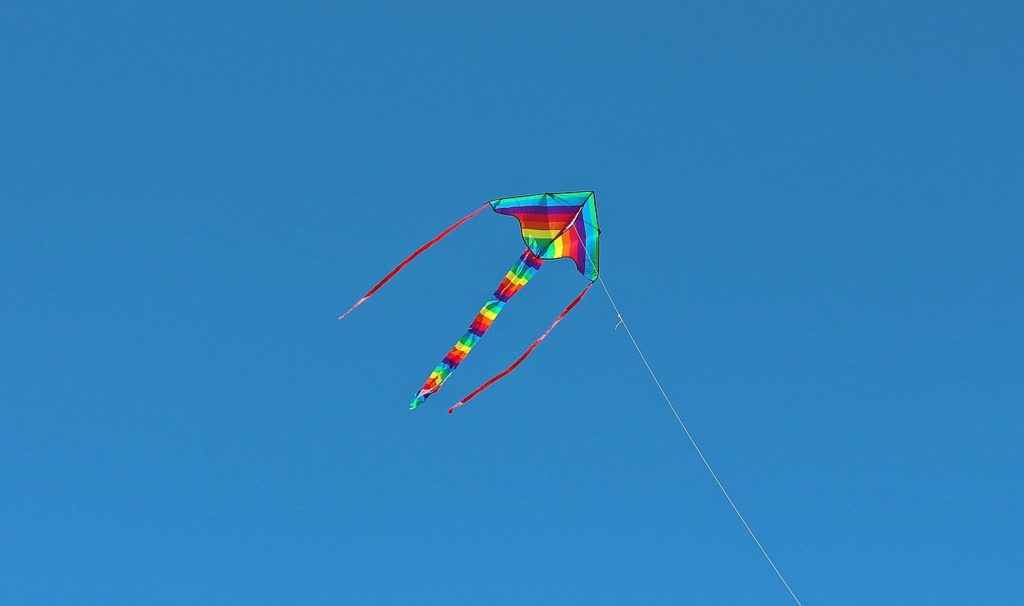
About twelve years ago, my sister told me about a friend who’d said he’d prefer his daughter be a “puta” (Spanish for “whore”) over his son being gay. The saddest part of hearing this was realizing that more disconcerting than the comment itself was how it reflected on the views I used to have when it comes to homosexuality.
I grew up in an environment where it was OK to say such things — and still is to some extent.
Like me, this man I’ll call Francisco was from Venezuela and had a Catholic upbringing. Homosexuality was either a sin or a condition that rendered bullying, rejection and discrimination wholly justifiable.
Also, for whatever reason, in the world of my youth, men could be gay and women whores — never the other way around. In fact, as a child, I thought homosexuality only “affected” men.
As far as my specific home environment, I will say my parents were more compassionate and evolved, so to say, than most. My mother, a generous woman, never subscribed to the view that homosexuality was a sin or that bullying anyone was acceptable.
My mom viewed homosexuality as a disease or disorder — sort of like diabetes or schizophrenia. She felt sad for those afflicted but didn’t judge them as sinners. As a young girl, I thought her views made sense.
I must have been around 15 when I met an openly gay person for the first time and began to question my outlook. Carlos was a pianist, composer and teacher and one of my sisters studied piano under him. He was one of the best-known pianists in Venezuela at the time and my mom was a huge fan.
One day, I went with my mom to pick up my sister at Carlos’s house. I was curious because my sister had already told me he was gay and had a partner. Carlos’s partner opened the door and offered us coffee while we waited for my sister’s lesson to end. Carlos had an artist look to him, very thin, ethereal, long curly hair. All else was unremarkable. I guess I expected exotic pets and over-the-top decor or something.
(Carlos died of AIDS and my mom and sister mourned him deeply. Here’s a mini-documentary about him in case you understand Spanish and are interested in knowing more about him.)
It wasn’t until I was in college that my views rapidly changed, not only on homosexuality but also on other issues, including abortion. When it comes to the latter, I’ve struggled to make sense of my views and where I stand.
Not so with homophobia. Unlike abortion arguments — whether “pro-choice” or “pro-life” — arguments surrounding LGBTQ issues seemed pretty black and white to me.
In a few words: You’re gay, you’re straight, you’re bi, you’re trans, who cares? It makes no difference and we must all have the same rights!
That’s how I thought I felt… until I had children and my prejudice resurfaced.
Many years after college, I went to graduate school for special education and interned in a university preschool program. One of the teachers there told us about a parent who was “sort of concerned” her 4-year-old son might be gay. Her son was obsessed with The Wizard of Oz and said that, when he grew up, he wanted to be a ladybug.
The parent, this teacher explained, was conflicted about even approaching her with questions. She made clear she’d love her son the same if he was gay; she just wanted to know if his interests and personality foretold his future sexual orientation.
In the discussion that followed, a couple of my classmates who, like me, had young children talked about what this mom was really getting at. Was she actually worried he’d be gay? Did she prefer he not be?
How about me? I’d never asked myself these questions, but my default thinking about my own young sons assumed straightness. I’d never worried. Philosophically, I told myself it was all the same to me. But did I prefer straightness for them? My gut reaction said I did, even if my mind said of course not!
To be perfectly frank, I don’t know if personality and interests at age 4 are in any way telling of sexual orientation and preferences later in life. I have now taught 4-year-olds for fifteen years. I’ve had a few little boys who loved to dress up as fairies and princesses and one student who said with great certainty that he’d be a princess when he grew up. I hope he gets to if that’s still what he wants!
Final thoughts
When it comes to homophobia, I’ve seen people move toward shedding their hate and prejudice and others cling to them. I’ve known of parents who sever all contact with their sons or daughters who come out. I’ve known others who embrace their children and whose attitudes begin to slowly change.
When my friend Carmen told me her coming out story, how difficult and frightening it had been and how it resulted in her mother’s and brother’s rejection, I was in awe of her courage.
I’m anything but brave. I admire people who, like Carmen, are courageous and honest in how they live their lives. They expand humanity. I know they’re not doing it for me, but they have my gratitude and admiration just the same.

